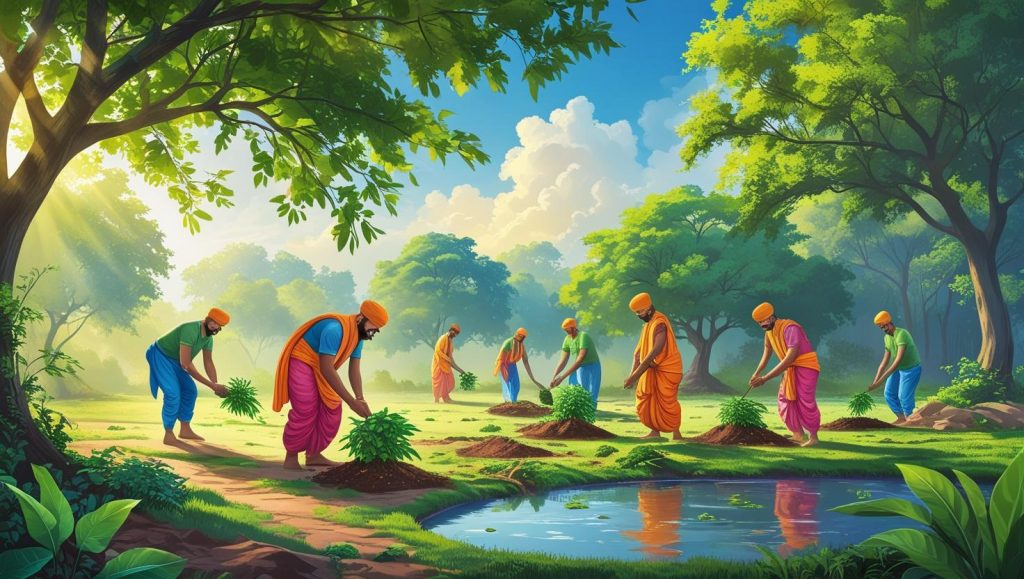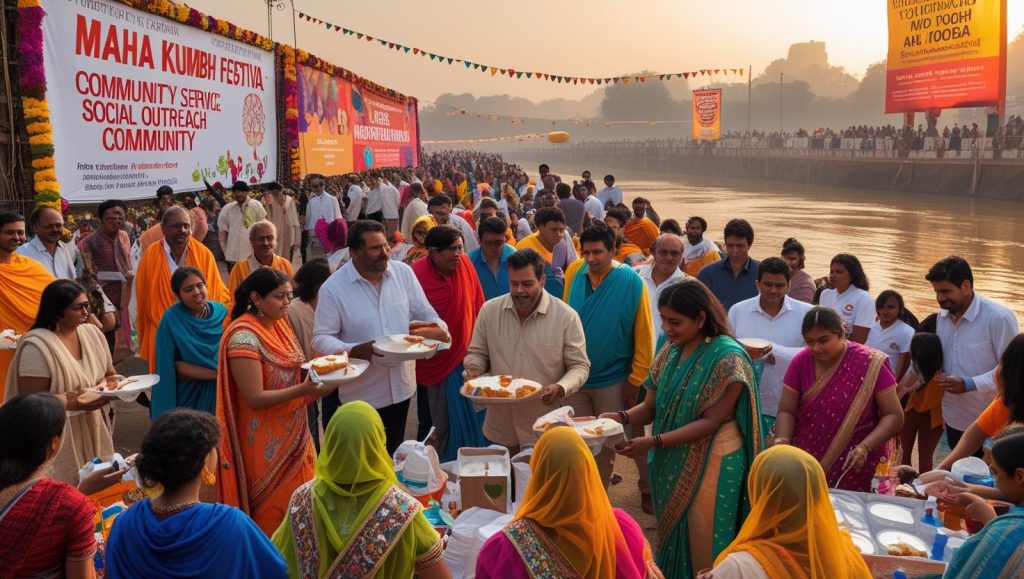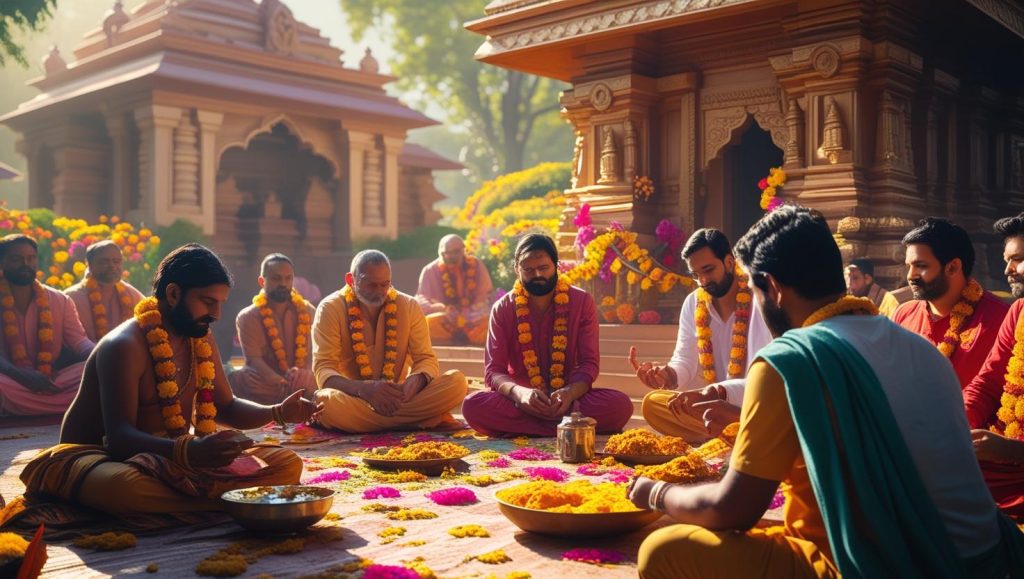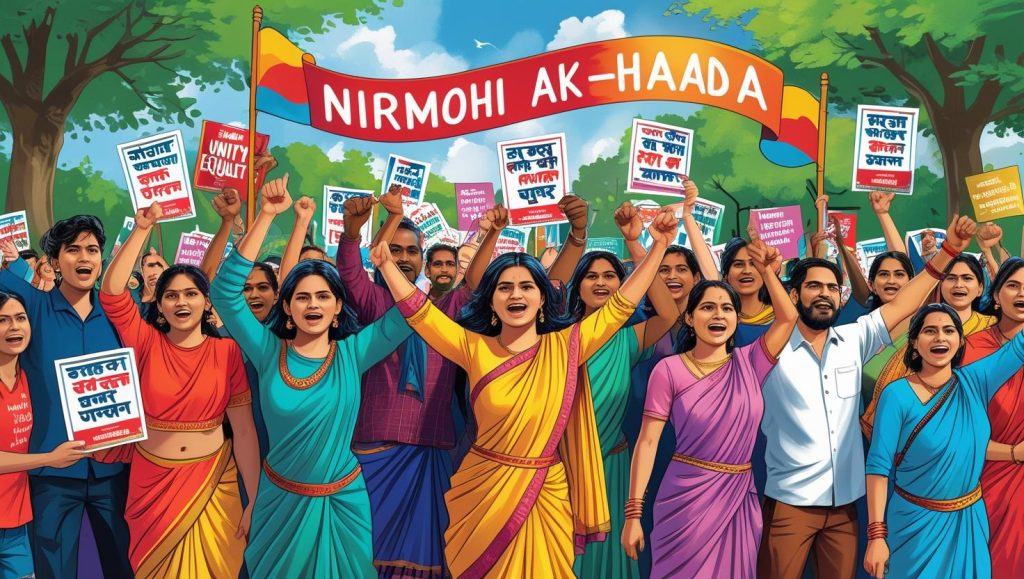Seva Parmo Dharma: Social Service as Sacred Duty
Guided by ancient principles and a spirit of service, Nirmohi Akhara actively engages in uplifting communities through education, healthcare camps, relief efforts, and youth empowerment.

Environmental Conservation
During the Maha Kumbh Mela, the Nirmohi Akhara, along with other akharas, has taken significant steps to promote environmental sustainability. They have been at the forefront of initiatives aimed at creating a plastic-free environment during the festival. This includes encouraging the use of biodegradable materials like dona pattal (leaf plates) and earthen utensils instead of plastic and thermocol products. Such efforts align with the broader goal of organizing a green and eco-friendly Kumbh Mela .

Community Service and Social Outreach
The Nirmohi Akhara is known for its strong emphasis on community service within the Vaishnavite tradition. This includes running free kitchens (langars) during religious gatherings, offering medical aid, and distributing spiritual literature to pilgrims and devotees. Such activities not only cater to the immediate needs of the community but also foster a sense of unity and shared purpose among participants .Such activities not only cater to the immediate needs of the community.

Spiritual and Cultural Preservation
Members of the Nirmohi Akhara are deeply involved in spiritual education, dedicating their lives to the study and dissemination of sacred texts like the Ramayana and the Bhagavad Gita. They engage in devotional activities such as chanting, bhajans (devotional songs), and puja (ritual worship), thereby preserving and promoting the rich cultural heritage of Vaishnavism .

Advocacy for Social Equality
The Akhara has taken significant steps to promote social equality by supporting the inclusion of individuals from marginalized communities in religious leadership roles. For instance, during the Maha Kumbh, efforts were made to appoint over 450 seers from deprived and Dalit communities to esteemed positions such as Maha Mandaleshwar, Mahant, and Mandaleshwar. This move underscores the Akhara’s dedication to fostering inclusivity and breaking societal barriers within religious institutions.

